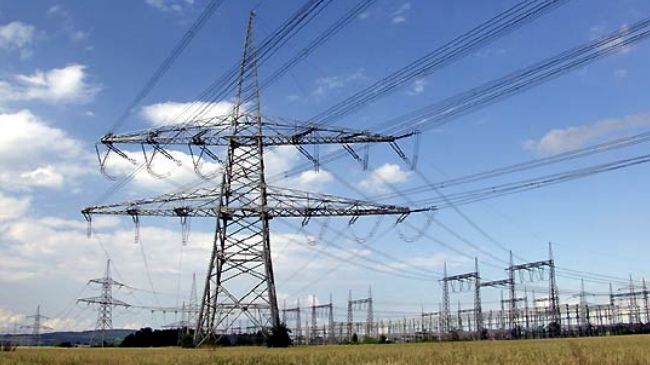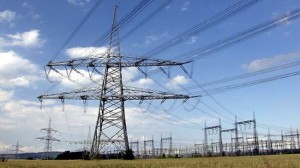Latest News
Lack of power to be solved in next 2 years

The minister of economic declared that the problem of lack of power in Afghanistan will be solved up to the next two years.
Afghanistan ranks among the countries with the lowest electricity production per capita in the world.
Despite billions of dollars in projects over the past decade, at best one-third of the population has access to regular power.
Abdul Satar Murad, minister of economic said that a joint commission has been started working for widespread use of electricity in the country.
Murad noted that many issues regarding the development of electricity in Afghanistan were discussed in RECCA summit.
“All of our needs in power field will be solved up to the next two years which the country would benefit from electricity and its transit,” Abdul Satar Murad, minister of economic said.
Currently, Afghanistan produces about 500 megawatts of electricity — less than a number of Caribbean islands. The country imports another 500 megawatts from neighboring countries.
The number of Afghans with access to electricity has only inched up from 6 percent in 2001 to an estimated 10 percent now, well short of the development goal to provide power to 65 percent of urban and 25 percent of rural households by the end of this year.
It has been said that the spreading insecurity in northern parts of the country caused the projects to not be implemented but Murad stressed that the enemy is not able to destroy public interest.
“Insecurity would not have negative impacts on implementation of our projects and those who invest in this program will not face any challenges,” Murad added.
Despite spending millions of dollars over more than six years studying the nation’s natural gas fields in the north, no plan is in place to tap that substantial resource for power. And a huge project to expand hydropower in the south that already has cost about $90 million is delayed by continued fighting in the region, which has long been a Taliban stronghold.
Murad emphasized that he will determine budget for those projects which stopped working due to lack of budget.
Afghanistan desperately needs to jump-start its economy if it hopes to stand on its own. But there’s a major constraint for a country trying to build a modern economy: electricity shortages.

Latest News
Girls’ education is a ‘vital issue’ for Afghanistan: Karzai

Former president Hamid Karzai said in a meeting with Iran’s ambassador and special representative, Hassan Kazemi Qomi, that education of girls was a “vital issue” for Afghanistan.
Karzai said he appreciated Iran’s cooperation and its standing with the Afghan people, especially Iran’s contributions to education in Afghanistan.
During the meeting, Karzai said peace and stability in the region are in the interest of all regional countries.
Latest News
Uzbekistan’s humanitarian aid arrives in Balkh

A shipment of humanitarian aid from Uzbekistan was handed over on Thursday to the local officials of Balkh province in the trade port of Hairatan.
Local authorities said the aid, which includes flour, oil, wheat, sugar and meat, has been handed over by Uzbekistan’s Surkhandarya governor to the governor of Balkh.
The governor of Surkhandarya stated the purpose of sending this aid was to support the people of Afghanistan and stressed the need for the development of good relations between the two countries.
Latest News
Afghanistan’s problems caused more damage to Pakistan than 3 wars with India: Durrani

Islamabad’s special envoy for Afghanistan Asif Durrani said on Wednesday that Pakistan has suffered more due to Afghanistan’s internal situation than Pakistan has suffered in three wars with India in terms of blood spilt and finances drained.
Durrani said at a one-day International Conference titled “Pakistan in the Emerging Geopolitical Landscape”, which was organized by the Institute of Strategic Studies Islamabad (ISSI) and the German Friedrich Ebert Stiftung (FES), that over 80,000 Pakistanis died in the two decades of the War on Terror and that his country was still counting its dead and injured.
“After the withdrawal of NATO forces, it was hoped that peace in Afghanistan would bring peace to the region. However, such expectations were short-lived,” he said.
He also stated that attacks by the Tehreek-e-Taliban Pakistan (TTP) militant group on Pakistan’s border areas increased by 65 percent, while suicide attacks increased by 500 percent.
“The TTP’s enhanced attacks on Pakistan while using Afghan soil have been a serious concern for Pakistan. Another worrying aspect is the participation of Afghan nationals in these attacks,” he said.
Durrani also said Pakistan had suffered geopolitically since the Soviet Union invaded the neighboring country.
“The post-9/11 world order has negatively impacted Pakistan. Apart from losing 80,000 citizens’ lives, including 8,000 law enforcement agency personnel, the country’s economic opportunity cost is estimated at $150 billion,” Durrani said.
Talking about the future outlook for Pakistan in the regional context, Durrani said that while “our eastern neighbor is likely to continue with its anti-Pakistan pursuits, the western border poses an avoidable irritant in the short to medium term.”
However, he said Pakistan can overcome its difficulties with Afghanistan, including the TTP challenge.
-

 Latest News5 days ago
Latest News5 days agoPakistan’s frontiers minister stresses ‘dignified’ return of Afghan refugees
-

 Latest News3 days ago
Latest News3 days agoRashid Khan named AWCC’s brand ambassador
-

 Regional4 days ago
Regional4 days agoIranian president lands in Pakistan for three-day visit to mend ties
-

 Climate Change5 days ago
Climate Change5 days agoMassive river flooding expected in China, threatening millions
-

 Latest News5 days ago
Latest News5 days agoChinese keen to invest in Panjshir-Kabul water conduit project
-

 World5 days ago
World5 days agoTwo Japan navy helicopters crash, one body found, 7 missing
-

 Sport4 days ago
Sport4 days agoKolkata beat Bengaluru by one run in IPL as Kohli fumes at dismissal
-

 Sport4 days ago
Sport4 days agoACL: Aino Mina 3-0 Istiqlal Kabul; Attack Energy 3-0 Khadim















